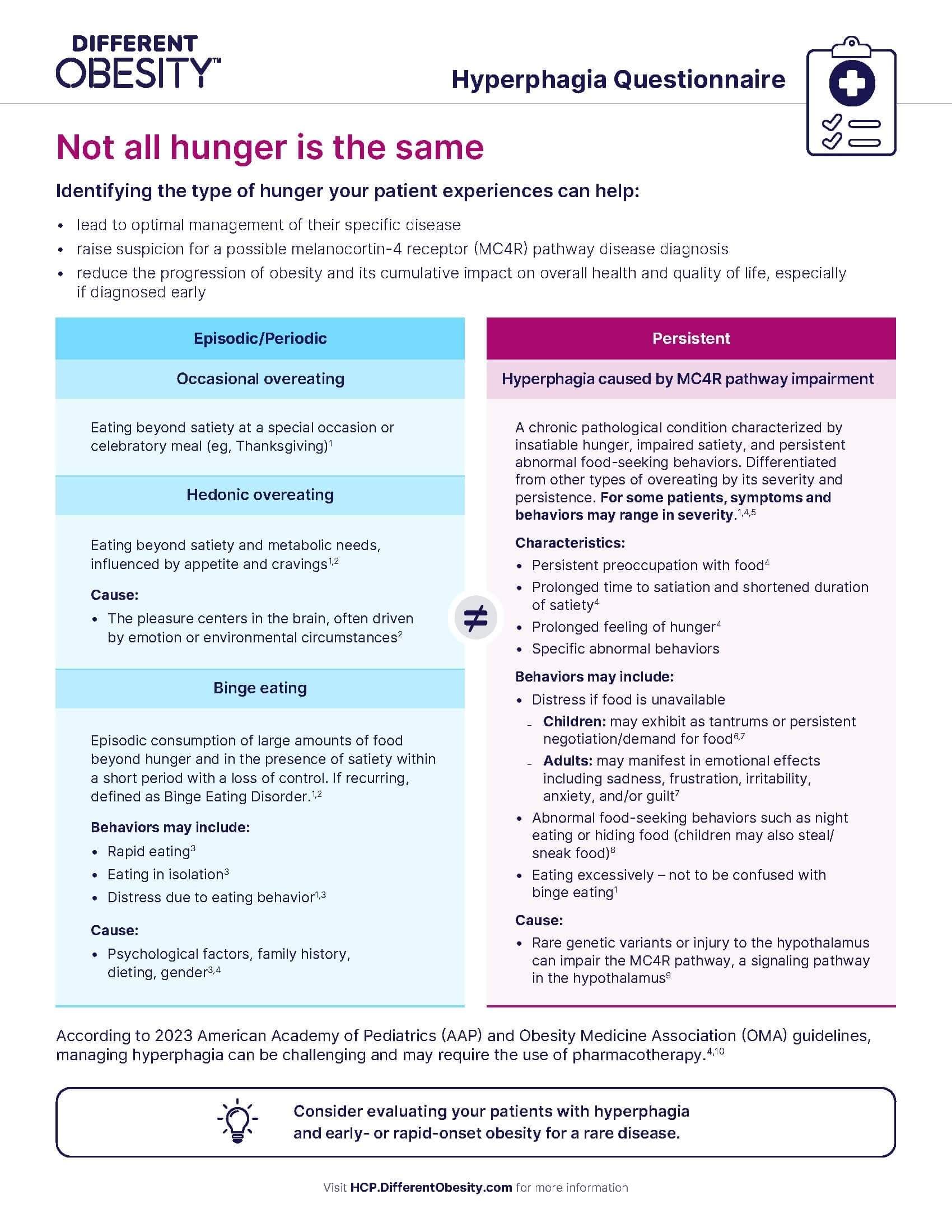Monogenic Obesity
POMC deficiency
Proopiomelanocortin (POMC) deficiency is often caused by biallelic variants in the POMC gene1
There are approximately 100-500 people living with POMC deficiency in the United States2
The POMC gene encodes for the POMC protein3:
- POMC is processed by the serine endoprotease, prohormone convertase 1/3 (PC1/3), encoded by the PCSK1 gene
- POMC is proteolytically cleaved to form Alpha-melanocyte stimulating hormone (α-MSH), which activates melanocortin-4 receptor (MC4R) downstream in the pathway
Get connected. Find resources and get more information
Signs and symptoms of POMC deficiency4-8
- Hyperphagia
- Obesity
- Hypoglycemia
- Hypothyroidism
- Adrenocorticotropic hormone (ACTH) deficiency
- Hypogonadotropic hypogonadism
- Red hair and light skin pigmentation
- Liver disease
Two key features among a wide range of symptoms4,5:
HyperphagiaChronic pathological condition characterized by insatiable hunger, impaired satiety, and persistent abnormal food-seeking behaviors
Early-onset obesityEarly-onset, severe obesity by age 1
Downloadable
Do you suspect your patient may have POMC deficiency? Use this questionnaire to identify hyperphagia in your patients with early-onset obesity.

“Every 5 minutes, he asked for food, or referenced food, or went to the kitchen to find food. I was swimming in the dark, not knowing what to do.”
– Caregiver of a child living with POMC deficiency
Genetic inheritance
POMC deficiency is inherited in an autosomal recessive manner.1
Individuals can have biallelic or heterozygous variants of POMC. Variants may be identified through genetic testing. Individuals with heterozygous POMC variants may experience POMC insufficiency and develop some symptoms of POMC deficiency, such as hyperphagia and obesity.3,7,9,10
Heterozygous variants of POMC are found more frequently in people with obesity than in normal-weight individuals.
Unlike the homozygous disease (POMC deficiency), individuals who are heterozygous for POMC may not exhibit endocrine abnormalities.
Diagnosis
These conditions may be difficult to diagnose based solely on clinical manifestations, but genetic testing may be helpful.
Genetic testing through the Uncovering Rare Obesity® program is available for eligible patients.

Watch how Karen and her son Nate, who lives with POMC deficiency, coped through finding a diagnosis.
Find out about a treatment option for obesity due to POMC deficiency.

Personalized one-on-one educational support* for your patients living with POMC deficiency
Rhythm InTune provides educational resources, wellness tips, and connection to a community for people living with POMC deficiency
Patient Education Managers are employees of Rhythm Pharmaceuticals and do not provide medical care or advice. We encourage patients to always speak to their healthcare providers regarding their medical care.
